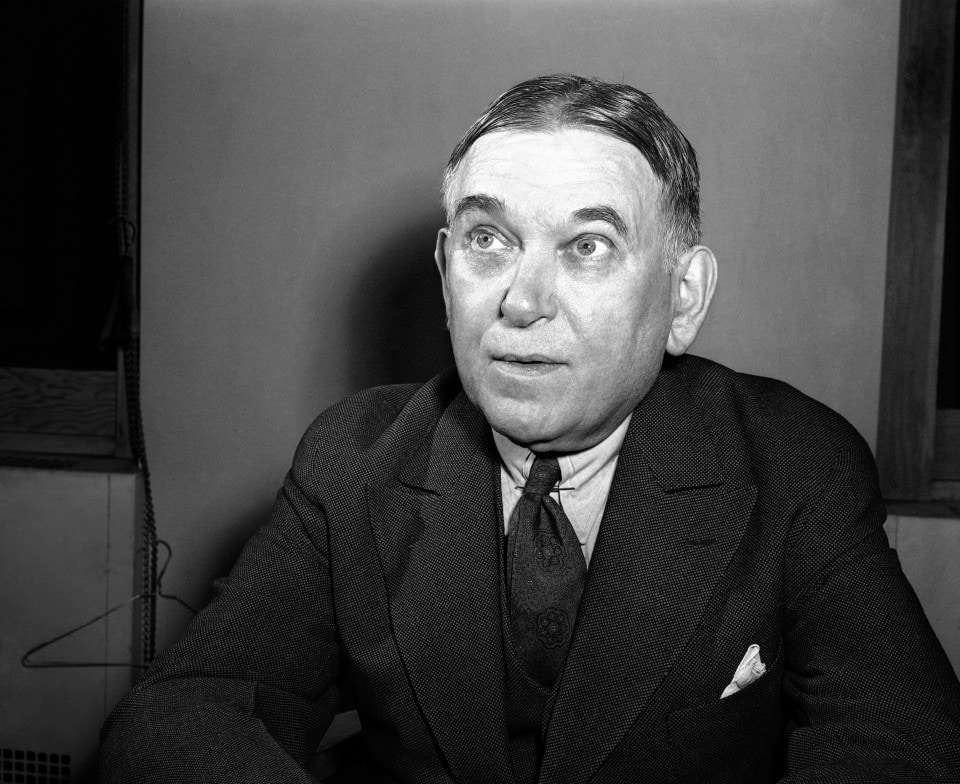The Volokh Conspiracy
Mostly law professors | Sometimes contrarian | Often libertarian | Always independent
H.L. Mencken writes a constitution

Yesterday, Tyler Cowen published an interview with Jill Lepore. Cowen is an economist at George Mason University and widely known for his blog Marginal Revolution (a feast for intellectual omnivores). Lepore is a historian at Harvard University and a writer for the New Yorker. It's a great interview, and Lepore brought up H.L. Mencken's constitution. What? H.L. Mencken wrote a constitution? As you would expect from Mencken, it's wickedly funny and wickedly serious. And it has gone almost completely unmentioned in legal scholarship (it's apparently mentioned in only one law review article).
I'll give you a few quotes, and then a link so you can read it for yourself.
Writing in 1937 for the American Mercury under the title "A Constitution for the New Deal," Mencken begins:
As everyone knows, the principal cause of the uproar now going on at Washington is a conflict between the swift-moving idealism of the New Deal and the unyielding hunkerousness of the Constitution proclaimed in March, 1788. That Constitution has been amended from time to time, but the process of amendment is slow and clumsy, and so the instrument lags far behind the bold fancies of forward-looking men.
Mencken noted the possibility of "packing the Supreme Court with judges willing to enlarge the Constitution by interpretation," but he rejected that solution because judges have the habit of developing "conscientious scruples." "Thus," he concluded, "the progress of mankind is hindered … What is needed, obviously, is a wholly new Constitution."
Article I is devoted to the executive. Section One begins: "All governmental power of whatever sort shall be vested in a President of the United States." Among the various powers given to the president is this variation on the commerce clause: "To regulate all commerce with foreign nations, and among the several States, and within them." The administrative state is authorized: "The President may, in his discretion, establish such bureaus, boards, commissions, and other executive agencies as he deems necessary, and clothe them with such powers as he sees fit, including the power to examine into the books and papers of any corporation or natural person, [and] the power to make and enforce laws." Criticism of the president is curtailed, but the opportunities of the president's family to make money are not.
Article I, Section Eleven specifies that the attorney general has two duties: "to provide legal opinions certifying to the constitutionality of all measures undertaken by the President, and, under the President's direction, to gather evidence of the senility of judges."
Do not think that in this constitution the legislature and judiciary are obliterated. Far from it. Article II, Section Four says that "All legislation shall be by bill. Every bill shall be prepared under the direction of the President, and transmitted to the two Houses at his order by their presiding officers." Members of Congress and federal judges have the right to petition the president for greater illumination of their duties.
Article IV contains a robust bill of rights. For example, "There shall be complete freedom of speech and of the press-subject to such regulations as the President may from time to time promulgate." And: "The right of the people to be secure in their persons, houses, papers, and effects, against unreasonable searches and seizures, shall not be invaded except by committees of the two Houses of Congress and persons appointed by the President, or by his agents."
There's much more. Read it all.


Show Comments (0)